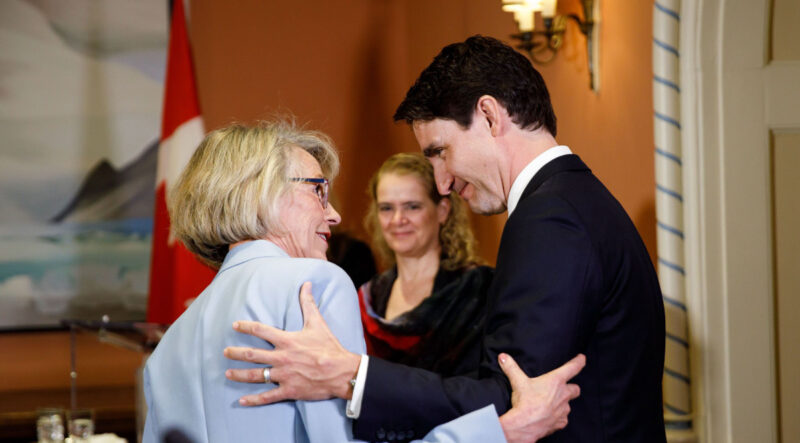Salmon prices soar as minister bows to anti-aquaculture activists
Why is Fisheries Minister Joyce Murray being allowed to ignore evidence-based and peer-reviewed government science advice on salmon aquaculture, ask Canada’s seafood farmers.
By Fabian Dawson
SeaWestNews
Canada’s seafood farmers are calling on Prime Minister Justin Trudeau to stop Fisheries Minister Joyce Murray from favouring her activist friends and their scientists as she works on a plan to transition marine aquaculture operations in British Columbia.
Murray, a prominent advocate to end open-net salmon farming in BC, is expected to present options to the Federal Cabinet soon that will impact more than 4,700 jobs and $1.2 billion in economic activity annually.
Members of the Coalition of First Nations for Finfish Stewardship (FNFFS) have already labelled minister Murray “untrustworthy”, after she ignored her own Department of Fisheries and Oceans (DFO) scientists and court rulings that have shown that the salmon farms in BC pose less than a minimal risk to wild stocks migrating through the maritime operations.
In an open letter to Trudeau, the Canadian Aquaculture Industry Alliance (CAIA) called out the uncertainty, confusion, and lack of due process caused by Murray, through her active disregard of her departmental science advisory process as it relates to the future of the BC salmon farming sector.
“Prime Minister, no resource-based sector in this country is able to operate with the level of uncertainty that has been created by Minister Murray’s rejection of a government science evaluation and advisory process. This is a very dangerous precedent,” CAIA said.
CAIA, which is the national association that speaks for Canada’s seafood farmers, has asked the following questions in their open letter;
1) Canadians are being asked to trust government science. Why is Minister Murray being allowed to ignore evidence-based and peer-reviewed DFO science advice on salmon aquaculture?
2) What science advice is Minister Murray basing her decisions on and why is this advice deemed more reliable than government-reviewed science advice?
3) Closing farms has devastating impacts on coastal and Indigenous communities, food prices and food availability for Canadians, and increased carbon emissions. Have studies been undertaken to understand the scope of negative social and economic impacts and is there any serious peer-reviewed evidence that shows that shutting down farms will bring back wild salmon?
Due to government decisions, 40 per cent of the BC in-ocean salmon farming sector is now closed down, and where Canadians can find Canadian salmon in stores, salmon prices for families have spiked by over 20%, CAIA said.
Minister Murray has rejected the government’s own science evaluations and multiple independent peer-reviewed processes that have concluded that salmon farms have minimal effect on wild fish abundance and that farmed and wild salmon can and do co-exist in the Pacific Ocean, said CAIA.
“She is instead relying on advice from other scientists connected to her activist friends outside the federal review process.”
“The Minister is circumventing the government’s own principles of evidence-based policy and undermining this Liberal government’s promises of Indigenous reconciliation and clean economic growth,” said CAIA President and CEO Timothy Kennedy.
“The Prime Minister trusts Agriculture Canada and Canadian Food Inspection Agency (CFIA) scientists daily to ensure that Canada’s food is safe. He trusts Environment Canada scientists on climate change. The DFO science process for aquaculture was just reviewed several years ago by an eminent international advisory group with the Chief Science Advisor to the Prime Minister and found to be fundamentally sound. Why is the DFO Minister choosing science linked to activists with a pre-set agenda?”
The letter called for a collaborative, evidence-based pathway in partnership with B.C. First Nations involved in salmon farming that enhances modern, sustainable in-ocean salmon farming, resulting in economic, social and environmental benefits for all Canadians.
SeaWestNews reported last weekend that Murray is planning to propose the further removal of salmon farms in BC very soon.
Murray’s office said a decision has not been made on the Transition Plan for open-net pen salmon farming in British Columbia.
Facebook File Image shows Prime Minister Justin Trudeau with Fisheries Minister Joyce Murray. Looking on is the former Governor General of Canada, Julie Payette.

